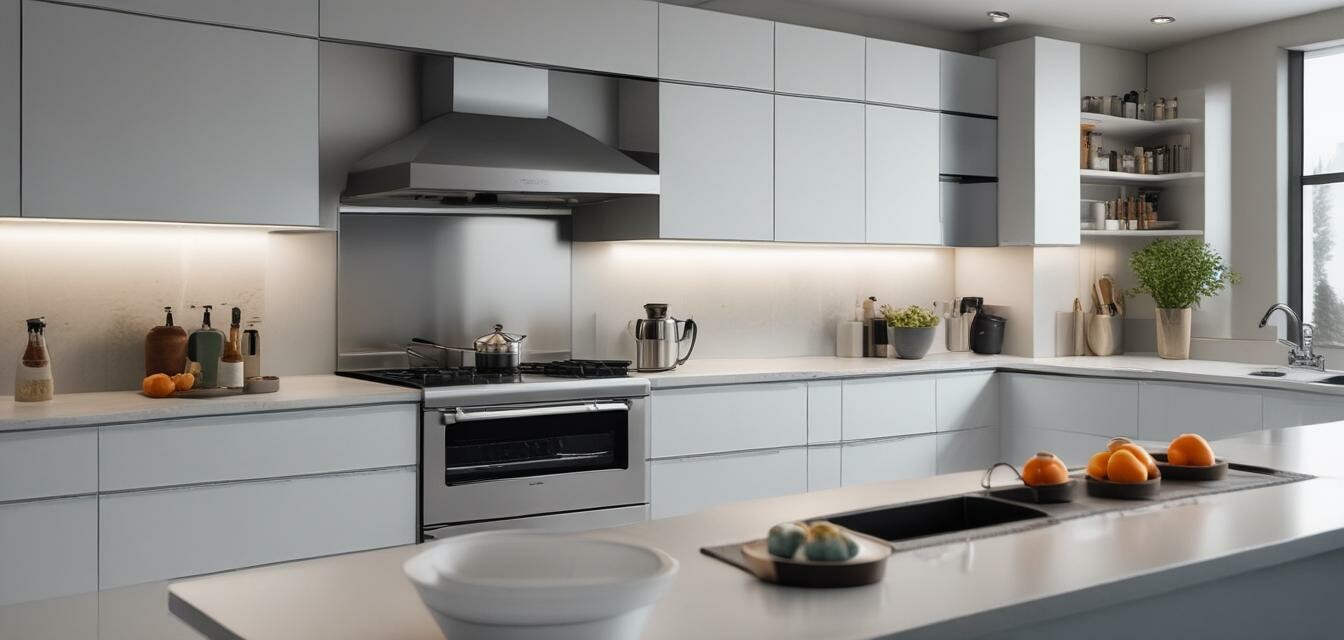
Smart Technology Trends Impacting Cooking Styles
Key Takeaways
- Smart appliances enhance cooking efficiency and convenience.
- Emerging technologies offer personalized cooking experiences.
- Intuitive control systems redefine how we interact with kitchen appliances.
- Energy-efficient appliances contribute to sustainability efforts.
- Design trends in modern kitchens elevate both functionality and aesthetics.
The landscape of home cooking is undergoing a significant transformation, driven primarily by advancements in smart technology. Today's kitchens are not just about cooking—they are about creating experiences that blend convenience, efficiency, and style. In this article, we will explore how various technologies are reshaping cooking styles and techniques in kitchens everywhere.
The Rise of Smart Appliances
Smart appliances are becoming increasingly common in today's kitchens, offering features that make cooking easier and more enjoyable. With connectivity, these appliances can be controlled remotely through smartphones, allowing users to preheat their ovens or adjust cooking times even when they are not in the kitchen.
| Appliance Type | Key Features | Benefits |
|---|---|---|
| Smart Ovens | Wi-Fi connectivity, recipe suggestions | Improved cooking precision, time-saving |
| Bluetooth-Enabled Grills | Temperature monitoring, remote control | Perfectly cooked food, convenience |
| Smart Refrigerators | Inventory tracking, food expiration alerts | Waste reduction, enhanced organization |
Personalized Cooking Experiences
With the integration of artificial intelligence, many smart kitchen devices can learn your preferences over time, tailoring their functionalities to suit your unique cooking style. For instance, smart ovens can remember your favorite recipes, adjust cooking times based on how you like your dishes cooked, and even guide you through complex cooking techniques.
Examples of personalization in smart technology:
- Automated cooking programs tailored to dietary preferences.
- Mobile apps that offer customized meal planning and grocery lists.
- Voice-activated controls for hands-free operation.
Beginner's Tips for Embracing Smart Cooking
- Start small: If you're new to smart technology, begin with one appliance, like a smart scale or thermometer, and expand from there.
- Explore mobile apps that work with your appliances to maximize their capabilities.
- Follow online resources and communities to share tips, recipes, and hacks for smart cooking.
Intuitive Control Systems
Modern kitchen appliances are increasingly equipped with intuitive control systems that change how we interact with them. Touchless faucets, voice assistants, and touch-screen displays simplify the cooking process, allowing for a more focused kitchen experience without the hassle of buttons and knobs.
Key Benefits of Intuitive Systems:
- Enhanced user experience with easy-to-navigate interfaces.
- Reduced physical contact—ideal for maintaining cleanliness.
- Quick adjustments during cooking without needing to stop.
Sustainability and Energy Efficiency
One of the central themes in modern kitchen appliance trends is sustainability. Energy-efficient appliances not only reduce energy consumption but also align with the growing global movement toward reducing our carbon footprint.
| Energy Source | Efficiency Rating | Example Appliances |
|---|---|---|
| Electric | Energy Star certified | Smart ovens and microwaves |
| Gas | High-efficiency models | Smart grills and ranges |
| Renewable | Sustainable energy ratings | Solar-powered appliances |
Design Trends Shaping Modern Kitchens
Apart from functionality, aesthetics play a significant role in the shift toward smart kitchens. Sleek, minimalist designs are now popular, making it easier for appliances to blend seamlessly into contemporary kitchen environments.
Popular Design Features:
- Integrated appliances that fit into cabinetry.
- Sustainable materials and finishes that enhance natural beauty.
- Smart lighting solutions that create welcoming atmospheres.
Conclusion
Smart technology is undeniably shaping the future of cooking. By embracing these trends, homeowners can create a kitchen that not only looks great but also works efficiently. The combination of smart appliances, personalized experiences, and intuitive interfaces is elevating how we cook and engage with our kitchens. Stay updated with the latest kitchen appliance trends to ensure you make informed decisions for your home.
Pros
- Convenience of remote controls
- Time-saving functionalities
- Enhanced cooking accuracy
Cons
- Initial costs can be higher
- Dependency on technology
- Potential compatibility issues